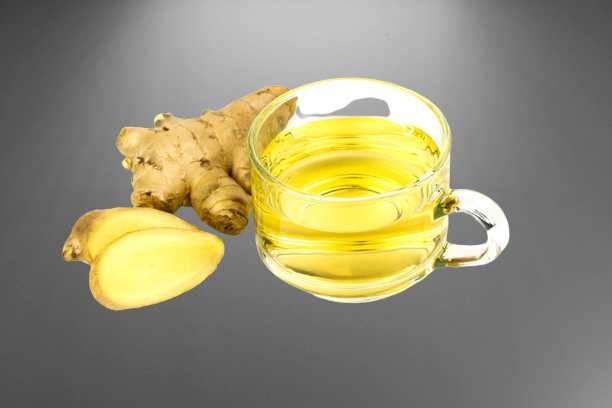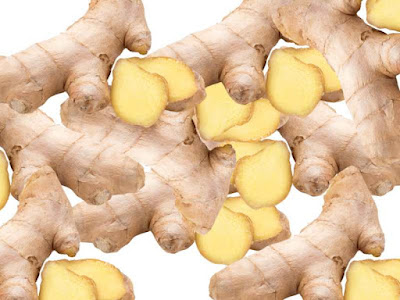 |
| Ginger Tea Benefits and recipe |
Whenever I have a headache, my mother makes me Ginger Tea and it is her favorite drink during monsoon.
The pleasure of drinking hot tea is something else. But heating the prepared tea repeatedly can. From chilly winters to hot summer mornings, sipping Ginger Tea is a favorite of most households in India. When the rainy season comes, even those people who never drink tea like to drink Ginger Tea. Surely Ginger tea can provide relief from cold problems which we face in mansoon. My mom says that Ginger Tea not only protects you from the problem of cold and cough during the rainy season, but also gives many other health benefits. Let us know whether Ginger Tea benefits are really so beneficial?
Ginger Tea benefits, it's really so beneficial?
Ginger is an ancient Indian spice, which has been used for a long time to cure coughs, colds and many other diseases. Apart from this, it is also very beneficial for feeling fresh and maintaining your body neutralize.
What is the opinion of experts about Ginger tea
1. Ginger tea reduces weight
Ginger tea is also considered beneficial for reducing weight. According to the 2018 research of the National Library of Medicine, ginger helps in reducing the extra weight of our body. Because it helps in increasing the heat in your body by controlling your appetite. If you include Ginger Tea in your diet, it helps in quick weight loss as well as weight control.
2. Improves digestion
Ginger acts as a natural antioxidant. Which is useful in keeping the stomach-related system healthy. Its antimicrobial elements help eliminate bacteria. Along with this, they also work as an antiseptic for the body.
3. Controls blood pressure
If you are suffering from high blood pressure then you should include Ginger Tea in your diet. According to a 2017 report by the National Library of Medicine, people who consume Ginger Tea daily have a lower risk of hypertension. Also, Ginger Tea is the best drink to keep blood pressure under control.
4. Improve blood circulation
Blood circulation is also cured by the consumption of Ginger Tea. Because chromium, magnesium and zinc are found in plenty in it. Which helps in improving blood blood flow. Due to which your entire blood circulation remains healthy.
5. Beneficial in headache and migraine
According to a 2014 report in Nutrition Journal, ginger is beneficial in relieving pain. That's why those suffering from headache and migraine problems must include Ginger Tea in their diet.
6. Hypertension
If you consume Ginger Tea daily, it can help in reducing the problem of hypertension. The properties found in ginger can help in controlling blood pressure.
7. Obesity
If you are worried about your increased weight, then take ginger daily. The properties found in ginger can help control appetite and reduce fat.
8. Digestion
In the monsoon season, eating anything inverted or with more oil and spices can cause digestive problems. In such a situation, consuming Ginger Tea can be beneficial. Consuming Ginger Tea can help in improving digestion.
Read more for How to get rid of cough and cold Home remedies
How to make beneficial Ginger Tea
Ingredients (for 2 cups of tea)
Milk – ½ cup
Water – 1½ cups
Crushed cardamom - 1-2
Sugar – 2 tsp
Tea leaves – 1½ teaspoons
Powdered ginger - 1 tsp
Ginger Tea Recipe
Boil water and tea leaves in a teapot
Now add crushed cardamom and sugar to it.
Add ginger to tea and boil it well
Finally add milk and let it cook for a while
When the color of the tea becomes thick, turn off the flame and filter it.
Now pour it in two cups and serve hot.
If you are health conscious, then you can also avoid sugar and milk in tea.
Drink Ginger and Licorice Tea day to day to keep your lungs healthy
Mulethi and Ginger Tea Benefits For Lungs Health: Mulethi and Ginger Tea can make your lungs strong. it's important to Learn its benefits and importance in life as well as how to make it.
Mulethi and Ginger Tea Benefits For Lungs Health: The spices present in the house provide you protection from many types of diseases. Cumin, licorice, ginger, coriander, asafoetida, and ajwain have been used for centuries to cure many diseases. Many benefits of all these spices are mentioned in Ayurveda, which work to make the body strong from inside. Let us tell you that by using ginger and licorice together, you can prevent the infection of respiratory diseases. The anti-inflammatory and anti-viral properties present in both of these make your lungs strong and capable of fighting infection. In this article, you have been told about the benefits of ginger and licorice tea. Along with this, you have also been told how to make their tea.
Make lungs strong with ginger and licorice - Ginger Mulethi Tea Benefits For Lung Health
Enriched with anti-inflammatory properties
Both ginger and licorice have anti-inflammatory properties. This gives relief in inflammation of the lungs. Inflammation of the lungs can make you more prone to asthma and other lung related diseases. Along with this, licorice also has properties that reduce inflammation of the respiratory system. Due to this you do not have any breathing.
Ginger mulethi tea for lungs health
Helpful in removing cough and phlegm
Ginger and licorice have such properties, which remove the problems of the respiratory system i.e. your respiratory system. With the regular consumption of this tea, your cough problem starts reducing gradually. Along with this, the phlegm accumulated in the chest comes out. You can drink this tea in the first part of the day while starving. It acts like a decoction and strengthens your lungs.
Full of antimicrobial properties
Antimicrobial properties are found in sufficient quantities in ginger and licorice. Because of this, your body becomes capable of fighting against viruses, bacteria and fungi that cause lung infection. Along with this, you are also safe from respiratory diseases.
Helpful in reducing oxidative stress
The antioxidant elements present in ginger are helpful in reducing the oxidative stress of the lungs. Because of this, the chances of getting asthma and COPD - chronic obstructive pulmonary disease increase. But drinking ginger and licorice tea keeps you safe from these diseases.
Helpful in boosting immunity
Ginger and liquorice tea have antibacterial and antiviral properties, which play a helpful role in improving your immunity. This helps you fight against lung disease.
How to make ginger and licorice tea?
To make this tea, pour about one and a half cups of water in a pan and put it on the gas to boil. After this, put about half a teaspoon of licorice and a piece of ginger in this water after crushing or grating it. When the water remains one cup, take it off the gas. Mix honey in this tea and drink it. This will also protect you from infections caused by the weather.
 |
| Ginger spice |
Ginger Spice and also use as medicine and its Benefits
Ginger is not only a spice but also a medicine protects against many diseases, know its glorious history
The history of origin of ginger is considered to be about 5000 years old. The history of the origin of ginger is considered to be about 5000 years old.
Ginger is actually a medicine (herb), which is beneficial in improving the digestive system, heart diseases, cold and flu. ...read more
Most ginger is grown in India among countries around the world. Ginger Spice
Ginger does not have seeds, small pieces of its tuber are buried in the ground.
Ginger is beneficial in improving the digestive system, heart diseases, colds and flu.
The significance of ginger in Indian food is like that of fuel for a vehicle. There will definitely be ginger in the kitchen of every household and those who keep some abstinence from ginger, they will find it using dry ginger (saunth). There is ginger in tea as well as in vegetables. It is included in Indian spices, but actually, it is medicine (herb). Ginger is beneficial in improving the digestive system, heart diseases, colds and flu. Most of the ginger is grown in India among the countries of the world. Ginger has been used in India and surrounding countries for thousands of years. Ayurveda also knows the 'taste' of ginger.
Ginger belongs to the spice family- Ginger Spice
In fact, sages and sages of India had known the properties of ginger thousands of years ago, so they included this medicine in Indian spices, so that their health could be maintained. Ginger does not have seeds and only small pieces of its tuber are buried in the ground. Actually it is not the aromatic root of the plant, but the stem i.e. the plant (Rhizom) grown inside the ground. It is used for spices and tea, as well as it is added to wine, bread, sauces, curry dishes, confectioners, pickles and beer for taste. In India, it has been added to the spice family, which includes turmeric, cardamom, large cardamom, etc. It is said that in the thirteenth-fourteenth century, the price of one pound of ginger in Arab countries was equal to the price of a sheep. Ginger also changes color. If it is put in vinegar, then its color becomes light pink like sushi fish.
India and China are its origin - Ginger Spice
The history of the origin of ginger is believed to be about 5 thousand years old, but its authentic information is available only in the year 1000 BC. There is no question that ginger started in India and China together. In the 'Haritvarga' chapter of the Ayurvedic text 'Charak Samhita', written in India in the 7th-8th century BC, the very first verse talks about ginger (Vishwabheshjam) and calls it palatable, appetizing, enhancing masculinity, Apart from stopping Vata and Kapha, it has also been said to be beneficial for digestion. The principal composed proof of ginger in China is tracked down in the Analects of the mastermind Confucius (475-221 BC). He has encouraged to eat ginger in each sort of food. Buddhist priest Fahiyan (337-422 Promotion), who came to India from China, has given data about its development in China and India while depicting ginger in his book. From these two nations, ginger spread gradually everywhere. Ginger was so esteemed by the Spaniards that they laid out ginger manors in Jamaica during the 1600s. Today India is the forerunner in the development of ginger and it sends out a large portion of it to America and Saudi Arabia.
The history of origin of ginger is believed to be about 5000 years old.
Ginger has been utilized in Ayurveda for quite a long time
Ginger is beneficial for improving the body. According to Ayurvedacharya Dr. Veena Sharma, Head of the Ayurveda Department of the Government University of Haryana, ginger is a spice as well as a medicine. Ginger has been utilizing in Ayurveda for quite a long time in medicine powder, decoction, gutika (tablet) and avaleh etc. It is not only beneficial in diseases like the digestive system, swelling, body pain, cold, and cough but also in diseases like heart disease, blood disorders, piles, etc., the medicinal properties of ginger are beneficial. Ginger is considered a panacea for the stomach. Aside from this, ginger is likewise gainful in illnesses connected with stones, fever, iron deficiency, and pee.
Ginger is considered a panacea for the stomach.
Rich in antioxidants, excessive intake is harmful
There is also evidence that ginger helps with nausea caused by vertigo. Also can reduce the pain of osteoarthritis. It is considered effective in muscle and joint pain. Its use is also beneficial in arthritis. It prevents bad cholesterol and controls sugar in the blood. There is also information in Ayurveda that clots do not form in the blood by the use of ginger. It is rich in antioxidants, as well as helping to protect cells from damage and prevent disease. There are some disadvantages of ginger too, like excessive dosage can cause rashes in the body. Gas and burning sensation in the stomach will be felt, as well as burning sensation in the mouth is also possible. If any medicine is being taken regularly then consult the doctor.
Ginger boosts testosterone levels
According to the National Institute of Health (Maryland, US), ginger increases testosterone levels. It also increases cholesterol levels by increasing the production of luteinizing hormones and testosterone. It can also prevent oxidative stress. Can keep blood sugar under control and increase blood flow. Basically, testosterone is an androgen. It is a male sex hormone, which plays a role in reproduction, development, and maintenance of a healthy body.





















0 Comments